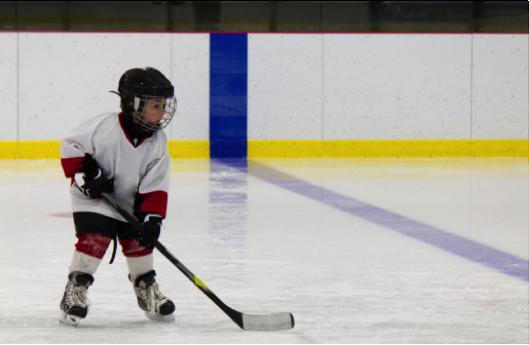Are You Risking Your Child’s Health by Ignoring the Benefits of this One Underused Tool?
posted: Feb. 21, 2014.
 Hockey season is upon us, and while we’d love to discuss team stats and last night’s scores, we recognize that, as your dentist, we have more important matters at hand…such as, the safety of your child’s teeth and jaw.
Hockey season is upon us, and while we’d love to discuss team stats and last night’s scores, we recognize that, as your dentist, we have more important matters at hand…such as, the safety of your child’s teeth and jaw.
The Centers for Disease Control and Prevention estimate that 600,000 children end up in the emergency room each year because of a sports related injury. However, 200,000 of those ER visits could be prevented with one simple tool: The mouth guard.
Football and hockey players are the two groups of athletes that could benefit the most from oral protection. Unfortunately, hockey players aren’t receiving the memo. Only 55 percent of Americans report that their child wears a mouth guard at both practice and games, and only a startlingly low 22 percent wears one at just the games. These numbers are frightening.
Dental injuries are the most common type of sport injury, according to the National Youth Sports Foundation for Safety…
An athlete is 60 times more likely to sustain an orofacial injury when they’re not wearing a mouth guard. Many times, these injuries are so severe they result in permanent damage to the facial structure and require extensive amounts of medical attention.
There are three types of dental injuries that are accrued through hockey and other high impact sports. All three can be prevented with a mouth guard. The types of injuries are as follows:
Fracture (Stage 1 Injury): A fracture is when one or more of the teeth are chipped, cracked or broken. If your child experiences a fracture during a game or practice, take them to a dentist IMMEDIATELY. Bring along the broken bit of tooth. Keep it either under your child’s tongue, in a cup of milk, in Hank’s balanced salt solution or in saline soaked gauze.
Avulsion (Stage 2 Injury): Avulsion is when the entire tooth—root and all—comes out of the socket. If this should occur, do NOT handle the tooth by the root; pick it up by the crown instead. Do not brush, scrub or sterilize the tooth in any way. If the tooth must be cleaned, gently rinse it in water. Once it’s clean, attempt to put the tooth back in its socket. If you’re successful in this, have your child bite down gently on a towel. However, if you cannot re-implant the tooth, seek the help of a dentist immediately.
Luxation (Stage 3 Injury): A luxation is when the tooth is fully intact, but it is in the wrong position. You’ll know when your child is experiencing a luxation because their tooth will either appear longer than the surrounding teeth (this is called an “extruded tooth”) or it will be pushed either forward or backwards from the surrounding teeth (this is called “lateral displacement”). If either of these occurs, the tooth will need to be repositioned through firm finger pressure. Repositioning should not be attempted by anyone other than a trained dentist or physician. Immediately after the injury occurs, have your child gently bite down on a towel and take them to get help.
Notice that we use the word “immediately” a lot in this post. That’s because we cannot stress enough the sense of urgency needed when handling severe dental injuries. Timing is critical to the health of your child’s teeth and jaw, and their chances for a full recovery diminish after 2 hours of the injury.
Prevention
At Lakeshore Family Dentistry, we want to help prevent sports injuries and keep your child’s smile healthy and intact. That is why we offer custom fitted mouth guards. With a mouth guard, your child’s odds of obtaining any of the aforementioned injuries are greatly reduced, as is their risk of concussion.
Whether your child is involved in Hockey this season, baseball next season or even soccer or gymnastics, don’t take the risk—have a custom fitted mouth guard made to ensure that their beautiful, youthful smile stays beautiful and youthful, no matter how physical their sport might be.
For more prevention tips for children, visit http://www.lakeshorefamilydentist.com/library/23/PreventionTipsforChildren.html